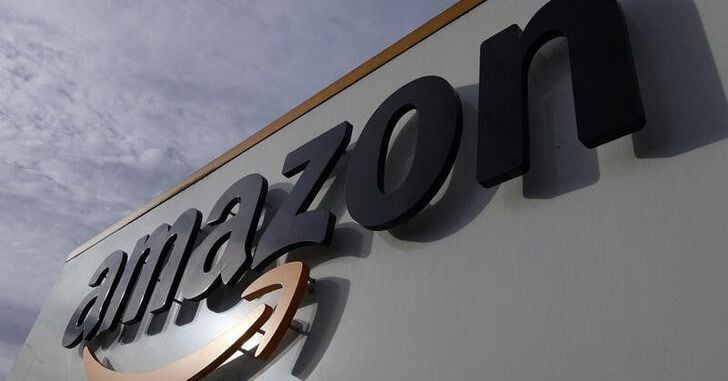WASHINGTON, Sept 26 (Reuters) - The U.S. Federal Trade Commission filed a long-awaited antitrust lawsuit against Amazon.com (AMZN.O) on Tuesday, charging the online retailer with harming consumers through higher prices in the latest U.S. government legal action aimed at breaking Big Tech’s dominance of the internet.
The lawsuit had been expected after years of complaints that Amazon.com and other tech giants abused their dominance of search, social media and online retailing to become gate keepers on the most lucrative aspects of the internet.
The lawsuit, which was joined by 17 state attorneys general, follows a four-year investigation and federal lawsuits filed against Alphabet’s (GOOGL.O) Google and Meta Platforms’ (META.O) Facebook.
“The FTC and its state partners say Amazon’s actions allow it to stop rivals and sellers from lowering prices, degrade quality for shoppers, overcharge sellers, stifle innovation, and prevent rivals from fairly competing against Amazon,” the agency said in a statement.
The FTC said that it was asking the court to issue a permanent injunction ordering Amazon.com to stop its unlawful conduct. The lawsuit was filed in federal court in Seattle, where Amazon is based.
Amazon shares were down 3%.
Amazon said that the FTC lawsuit was wrongheaded and would hurt consumers by leading to higher prices and slower deliveries.
“The practices the FTC is challenging have helped to spur competition and innovation across the retail industry, and have produced greater selection, lower prices, and faster delivery speeds for Amazon customers and greater opportunity for the many businesses that sell in Amazon’s store,” said David Zapolsky, Amazon’s general counsel.
The FTC said that Amazon, founded in 1994 and worth more than $1 trillion, punished sellers that sought to offer prices that were lower than Amazon’s by making it difficult for consumers to find the seller on Amazon’s platform.
Other allegations include that Amazon gave preference to its own products on its platforms over competitors also on the platform. ‘MONOPOLY POWER’
FTC Chair Lina Khan said that Amazon had used illegal tactics to fend off companies that would have risen to challenge its monopoly.
“Amazon is now exploiting that monopoly power to harm its customers, both the tens of millions of families that shop on Amazon’s platform and the hundreds of thousands of sellers that use Amazon to reach them,” she said.
Khan, while a law student, wrote about Amazon.com’s dominance in online retailing for “The Yale Law Journal” and was on the staff of the House committee that wrote a report issued in 2020 that advocated reining in four tech giants: Amazon.com, Apple (AAPL.O), Google and Facebook.
Amazon’s critics welcomed the lawsuit.
“No corporation has ever centralized this much power across so many crucial sectors. Left unchecked, Amazon’s power to dictate and control threatens the rule of law and our ability to maintain open, democratically governed markets,” said Stacy Mitchell of the Institute for Local Self-Reliance which has pushed for the government to act against Amazon.
The need to take action against Big Tech has been one of the few ideas that Democrats and Republicans have agreed on. During the Trump administration which ended in 2021, the Justice Department and FTC opened probes into Google, Facebook, Apple and Amazon.
The Justice Department has sued Google twice - once under Republican Donald Trump regarding its search business and a second time on advertising technology since Democratic President Joe Biden took office. The FTC sued Facebook during the Trump administration and Biden’s FTC has pressed forward with the lawsuit.
I’m looking forward to Amazon’s upcoming light slap on the wrist and increased lobbying efforts.
I go out of my way not to buy from Amazon. It’s not some altruistic move - about 3 or 4 years ago I started noticing how little oversight Amazon was placing on the products listed, and you’d be lucky if anything (especially tech) was actually what you’d ordered and not some knockoff or used.
I think I’ve only bought one or two things from Amazon (other than digital books) in that time frame. I always look to buy directly from the vendor, if I can.
What concerns me is that I’ve started noticing more and more companies seem to only sell on Amazon. I see this as a mistake, as it hands over more control to one sales channel. I understand a new company doing this, but companies who are well established should maintain their own sales channel directly with their customers, even if they also sell on Amazon.
Recently I bought items from Wahl, Nike and Anker, directly from them. Wahl has products you can only get from their site. I always feel more comfortable just ordering directly from the company when I can, and I notice some companies seem to get that.
If I order directly from the company, I also get better support. I have an actual order number from the company, and correspondence/confirmation from the company. Special deals work better (the same deals on Amazon sometimes have hiccups).
If you look closely you can see who fulfills the order and what “store” is selling it. An official brand store will usually be reliable if the brand is.
only if its shipped by the seller.
Due to amazons stock mixing practices, You could still get a counterfit/return/broken item no matter what seller you order from if its fulfilled by amazon
That’s why I mentioned fulfillment. However official store items are supposed to have a unique identifier to stop anyone else’s product getting sent. If you buy (for example) an Anker phone battery and get an Ankre phone battery instead then it was because Amazon specifically injected that. And if true that’s another thing to go after them for. But I’ve never had that problem as long as (in the case example) I buy from the official Anker store front on Amazon. Now if buy from 123Electronics it gets bad. And worse if fulfillment is through Amazon on that third party seller.
the problem isnt getting an Ankre Phone battery when you order Anker
the problem is getting battery that says Anker, but came from a ripoff factory with no safety and ends up burning your house dow, because the box and the internals are identical, thus counterfit… not knockoff.
Or, like one motorcycle guy on youtube got, an official box with a precise weight of rocks in it…TWICE.
Okay that’s literally theft at that point. I highly doubt Amazon has a policy of replacing products with a weight of rocks meant to fool their own sensors.
You’re a couple apples short of a bushel aint ya?
No ones claimed amazons the one putting fake stuff in boxes… I’ve said, repeatedly, that the issue is their stock mixing. Private sellers, returns, brand names, all their stuff is mixed together, without any indicator of what originated from who, Which leads to cases like this.
Have you seen how their system works? Everything is individually tagged. Sitting it next to other things isn’t an issue. And getting a box of rocks is something that can happen to any retailer.
Amazon ain’t great but this is ridiculous.
I wonder how amazon is preventing other people from lowering prices
It’s right there in the text.
Amazon sells many items I sell in my brick and mortar shop for less than I can purchase them from distributors. Many times at not much more than my distributors pay. This causes me to either not be able to sell the items, or sell at a loss.
I’m sure there are some common items they do this for just to retain customers, similar to how grocery stores do
How exactly do they lower their prices more than Amazon can? Amazon can go at a deficit for hundreds of years and stay in business.
charging the online retailer with harming consumers through higher prices
Am i the only that read what theyre being charged with?
So all their competition has been burnt out and we’re in late-stage monopoly
What do they have a monopoly on?
Are you just playing dumb at this point?
No, im someone that never uses amazon and has never had a problem getting anything from other retailers. Yall are the ones came in assuming no one could compete because their prices are too low, but turns out theyre too high.
Remember that AZ takes a percentage cut of each sale and is also able to ship cheaper than basically anyone because of their position in the market. So imagine you have a product, and in order to make a profit from said product you have to charge $x. But in order to profit after Amazon’s fees you have to charge $x + $y on Amazon’s platform. So that’s where the “prices too high” cones from. If your product does well on amazon they’ll make their own version and sell it for less than $x. Now you get less sales on AZ and you can’t go back to selling on your own site because you can’t compete with your higher shipping costs, plus AZ can run at a loss on the product they copied from you until you’re out of business… This is where the “prices too low” comes from; the price AZ can offer is too low for you to compete with. After you go out of business, AZ can charge whatever they want. So you see “prices too high” again.
When you start selling a new product you take on risk because there might not be a sustainable market for it. AZ never has to take this risk, but they can reap the rewards from your risk if it does well.
Amazon has a tendency to sell certain things, books in particular, at a loss. It’s impossible to undersell Amazon and make a profit.
charging the online retailer with harming consumers through higher prices
Theyre being sued for having prices too high
The company keeps prices higher by deterring online sellers who offer cheaper alternatives by burying their results on its platform making them “invisible,” the FTC claimed. Amazon made it expensive for sellers to sell products on other platforms when they are part of its fulfillment service, which then makes it tougher for these businesses to compete against the retailer.
The regulator also accused Amazon of “deliberately” flooding a customer’s search results with ads that make it a less pleasant experience when they search for products on the platform. The company also elevated its own products over others that might be of better quality in its search results and charges sellers fees that are about 50 percent of their revenues, the FTC alleged.
They are complaining that Amazon sorts product listings based on price. Omg, how terrible…
You have not been paying much attention in the last few decades then
I’ll give an anecdote that I experienced just now. I bought a computer component, but I had to dig through the “other buying options” to find it on Amazon. The default recommended listing had a price of $207, delivered to me by 2 October. The listing I eventually found was priced at $206, delivered by 28 September. So it cost less and would arrive sooner, the only difference is that it was a third-party seller and not Amazon.
Why is step 1 literally going to Amazon?








